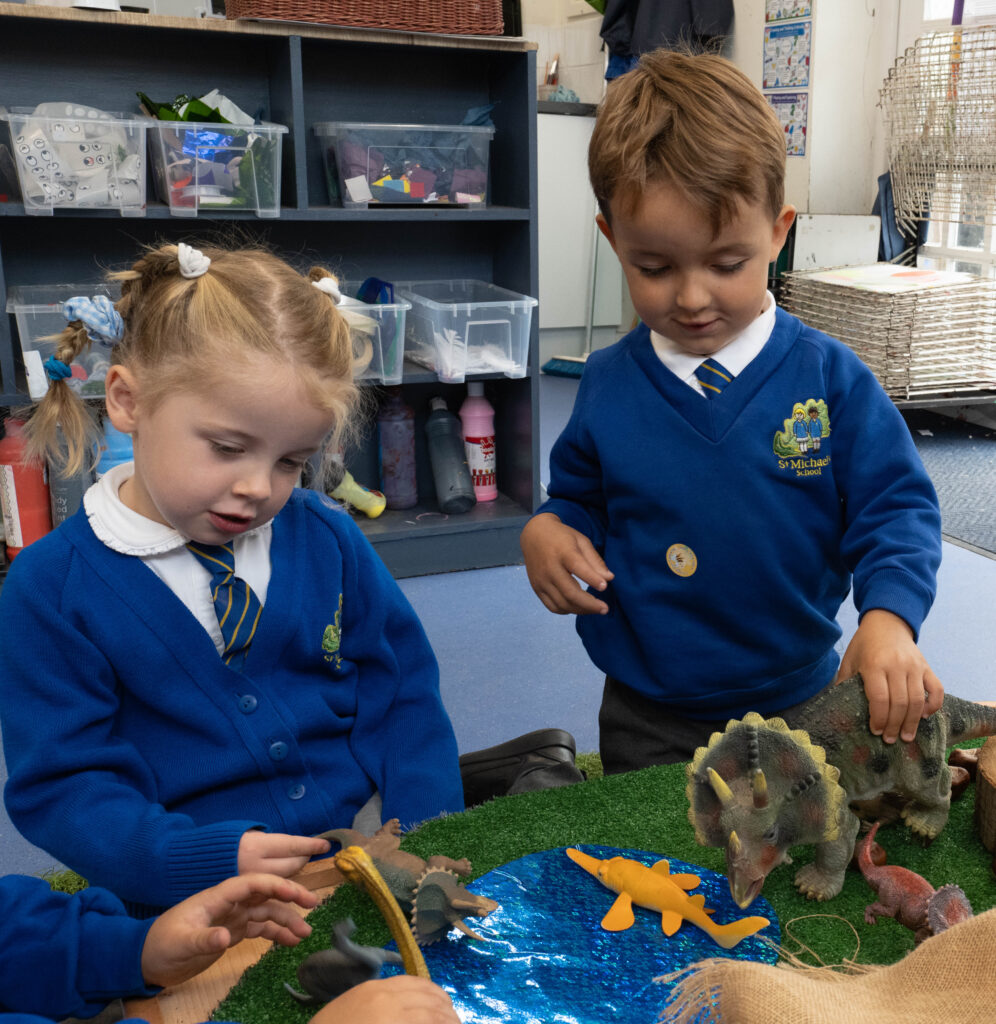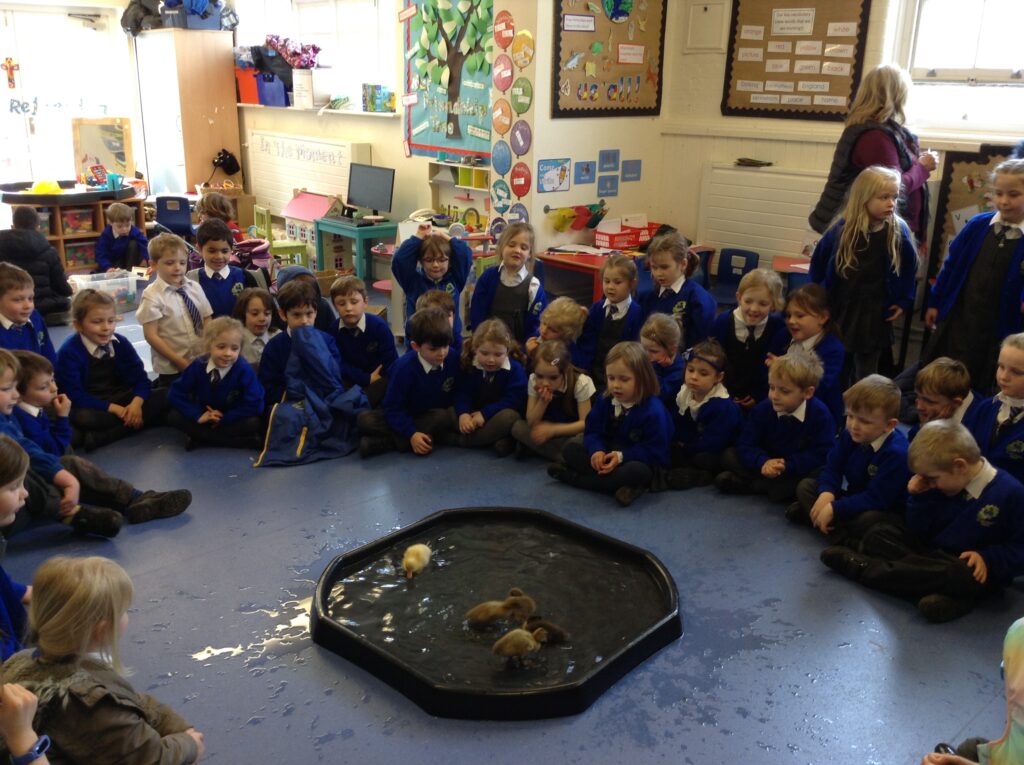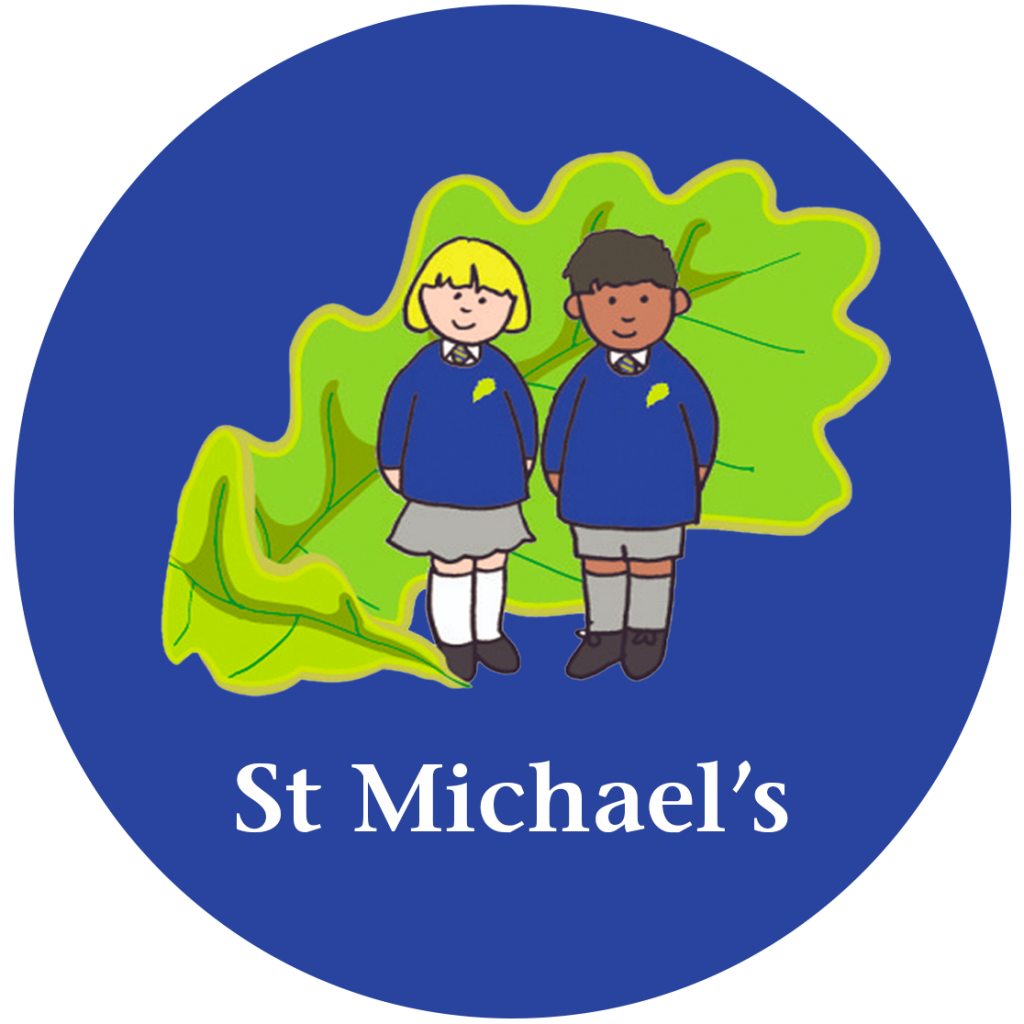Science
We believe that if we open our hearts and minds to the possibilities each and every one of us, no matter how small, can make a difference in our school and beyond. The parable of The Mustard Seed teaches us that God can do a lot with a little! At St Michael’s school we passionately believe that every child has a unique, inner curiosity to learn. Through investigative experiences and inspiring teaching, all of our young children will learn and grow as scientists, learning about our world and how we can help it.
How will the children learn and grow in Science?
We offer a hands-on Science curriculum where children are encouraged to observe and look after the world around them and ask questions about it.
At St Michael’s, our pupils begin to experience and develop an understanding of scientific enquiry skills from an early age, such as observing, recording, measuring and testing.
Our children are introduced to a range of scientific concepts and vocabulary through engaging, exciting learning. We often get messy and our children are not afraid to be involved in and take ownership of their own experiments and investigations.
Each child is involved in every part of an investigation from the planning, through to the doing, recording and evaluation. There is time given for reflection and discussion with their peers and adults at every stage of learning.
They are encouraged to think of and ask their own questions. Through skilful questioning we aim to develop higher-order thinking skills and a deeper analysis for our children to be able to discuss their learning and how it fits into the wider world. Our children then use this knowledge to understand new concepts, make well-informed decisions and pursue new interests.
Our scientists at St Michael’s will learn to understand the importance of science outside the classroom and develop a love for exploring and helping the natural world.
How will we make this happen?
Pupils will be given the opportunity to explore and think critically during their science lessons. We spark our children’s imaginations so that they find science inspiring and interesting and link it to their learning in other parts of the curriculum, for example maths and computing.
We always start a new topic by eliciting children’s existing understanding of a topic so that they can learn and grow as they build on their existing knowledge of a concept. Early Years is where we encourage our children to observe the world around them. A range of materials is provided daily as part of our ‘continuous provision’, which will be enhanced and added to, encouraging children to begin to notice changes and ask questions.
Children will explore, and build on their previous learning, refining their ideas and developing their ability to explain what they notice. They will have opportunities for collaborative work sharing ideas, resources and ideas. In Key Stage One children build on and refine their understanding based on experiences and observations they have made in the Early Years. Children continue to work collaboratively and have discussions about how to find out the answers to their questions and they learn how to plan and carry out investigations.
Where possible, we share learning with home so that children can continue these discussions at home. Children at St Michael’s learn about a range of scientists and explorers and start to make observations about how their findings have shaped how we do things today. Our hope is that our children in Year 1 and 2 will start to realise that they too have the power to effect change from things that they find out.
How do we know this has made a difference?
At St Michael’s school, our children can talk about things they have observed, questions they have asked and investigations they have planned and carried out. We consider timely assessment in science to be key to children’s progress. By eliciting previous knowledge of a topic we address misconceptions early and help children build on what they already know. Informal assessment and questioning are used every lesson and feed into teacher planning for the next lesson. Science is tracked using the schools adapted Rainbow Continuum assessment model with a focus on scientific enquiry skills and how they progress and develop over time.
The children can talk about…
- Materials: material names and properties, use and suitability of materials, how materials can be changed.
- Plants and trees: the names and structure of different plants and trees, growing in different conditions, plants in their habitats.
- Animals, including humans: the names and types of different animals, the diets of different animals, the human body and five senses, human needs including exercise, healthy eating and hygiene.
- Seasons: the four seasons and how they change overtime, day length and daily weather.
The children can…
- Make first hand observations
- Use secondary sources
- Sort, classify and identify
- Perform simple tests
- Record data
- Use their observations to answer questions
- Predict, compare and make conclusions.


